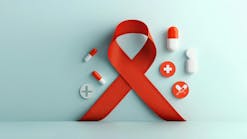The National Institute of Allergy and Infectious Diseases (NIAID), part of the National Institutes of Health, has stopped administration of vaccinations in its HVTN 702 clinical trial of an investigational HIV vaccine. This action was taken because an independent data and safety monitoring board (DSMB) found during an interim review that the regimen did not prevent HIV. Importantly, the DSMB did not express any concern regarding participant safety.
The Phase 2b/3 study, named HVTN 702 or Uhambo, began in 2016 and is taking place in South Africa. It was testing an investigational prime-boost vaccine regimen based on the only vaccine regimen ever to show protection from HIV—the regimen tested in the RV144 clinical trial in Thailand led by the U.S. Military HIV Research Program and the Thai Ministry of Health. For HVTN 702, the vaccine regimen was adapted to the HIV subtype Clade C most common in southern Africa, where the pandemic is most pervasive.
The HVTN 702 study enrolled 5,407 HIV-negative volunteers at 14 sites across South Africa. The study population consisted of sexually active men and women aged 18 to 35 years. The study volunteers were randomly assigned to receive either the investigational vaccine regimen or placebo injections. Study participants received six injections over 18 months. As with all NIAID-sponsored HIV prevention trials, the safety of HVTN 702 study participants was closely monitored throughout the trial, and participants were offered the local standard of care for preventing HIV, including access to oral pre-exposure prophylaxis (PrEP).
In the January 23, 2020, interim analysis, the DSMB examined data from 2,694 volunteers who received the investigational vaccine regimen and 2,689 volunteers who received the placebo injection. The analysis looked at how many participants were diagnosed with HIV after at least 60 percent of the participants had been in the study for more than 18 months — enough time for the vaccine regimen to stimulate an immune response. In this analysis, 129 HIV infections occurred among the vaccine recipients, and 123 HIV infections occurred among the placebo recipients.
Based on these findings, the DSMB concluded that the investigational vaccines had not shown any efficacy. The DSMB recommended that no further vaccinations be administered and that participants remain in the study for follow-up. The report noted there was no significant evidence of either decreased or increased infection rates with vaccination.
NIAID, the trial sponsor, concurred with the DSMB’s recommendation, and stopped the vaccinations. Participants are being informed, and study investigators will continue following study participants over time.
In addition, the proof-of-concept AMP trials are testing an intravenously delivered investigational antibody for preventing HIV. Other cutting-edge studies, including the AMP trials, are investigating if broadly neutralizing antibodies (bNAbs) can protect against HIV. Two other large-scale trials are testing an investigational long-acting injectable antiretroviral drug, cabotegravir, for HIV prevention. Additional novel, long-acting HIV prevention products are also under study, including implants, vaginal rings, combinations of bNAbs and multi-purpose products that offer contraception along with HIV prevention.
The HVTN 702 vaccine regimen consisted of two experimental vaccines: a canarypox vector-based vaccine called ALVAC-HIV and a two-component gp120 protein subunit vaccine with an adjuvant to enhance the body’s immune response to the vaccine. Both ALVAC-HIV (supplied by Sanofi Pasteur) and the protein vaccine (supplied by GSK) were modified from the versions used in RV144 to be specific to HIV subtype C. Additionally, the protein subunit vaccine in HVTN 702 was combined with MF59, a different adjuvant than the one used in RV144, in the hope of generating a more robust and durable immune response. Finally, the HVTN 702 vaccine regimen included booster shots at the one-year and 18-month timepoints in an effort to prolong the early protective effect observed in RV144. HVTN 100, a predecessor clinical trial using the HVTN 702 regimen, found that the new vaccine regimen was safe and induced high and boostable titers of antibodies to several HIV strains prevalent in southern Africa.
South Africa has one of the highest HIV rates in the world. According to UNAIDS, more than 20 percent of the adult population ages 15-49 in South Africa are living with HIV, and 240,000 people acquired HIV in 2018. Young people, like the volunteers who enrolled in the HVTN 702 study — and particularly young women—are at the highest risk for HIV.




